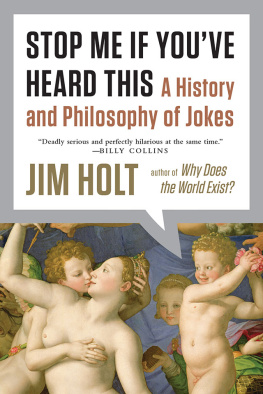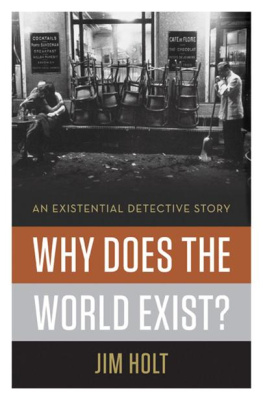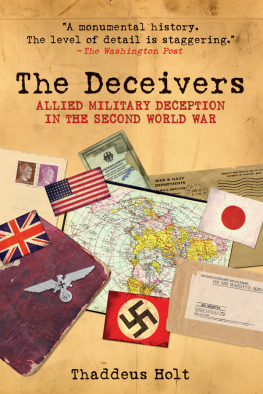Holt - Stop me if youve heard this: a history and philosophy of jokes
Here you can read online Holt - Stop me if youve heard this: a history and philosophy of jokes full text of the book (entire story) in english for free. Download pdf and epub, get meaning, cover and reviews about this ebook. City: New York, year: 2008, publisher: W. W. Norton Company, genre: Detective and thriller. Description of the work, (preface) as well as reviews are available. Best literature library LitArk.com created for fans of good reading and offers a wide selection of genres:
Romance novel
Science fiction
Adventure
Detective
Science
History
Home and family
Prose
Art
Politics
Computer
Non-fiction
Religion
Business
Children
Humor
Choose a favorite category and find really read worthwhile books. Enjoy immersion in the world of imagination, feel the emotions of the characters or learn something new for yourself, make an fascinating discovery.
- Book:Stop me if youve heard this: a history and philosophy of jokes
- Author:
- Publisher:W. W. Norton Company
- Genre:
- Year:2008
- City:New York
- Rating:5 / 5
- Favourites:Add to favourites
- Your mark:
Stop me if youve heard this: a history and philosophy of jokes: summary, description and annotation
We offer to read an annotation, description, summary or preface (depends on what the author of the book "Stop me if youve heard this: a history and philosophy of jokes" wrote himself). If you haven't found the necessary information about the book — write in the comments, we will try to find it.
Heard Thisis the first book to trace the evolution of the joke all the way from the standup comics of ancient Athens to the comedy-club Seinfelds of today. After exploring humors history in Part One, Holt delves into philosophy in Part Two: Wall Street jokes; jokes about rednecks and atheists, bulimics and politicians; jokes you missed if you didnt go to a Catholic girls school; jokes about logic and existence itself . . . all became fodder for the grand theories of Aristotle, Kant, Freud, and Wittgenstein in this heady mix of the high and low, of the ribald and profound, from Americas most beloved philosophical pundit.
Holt: author's other books
Who wrote Stop me if youve heard this: a history and philosophy of jokes? Find out the surname, the name of the author of the book and a list of all author's works by series.

















